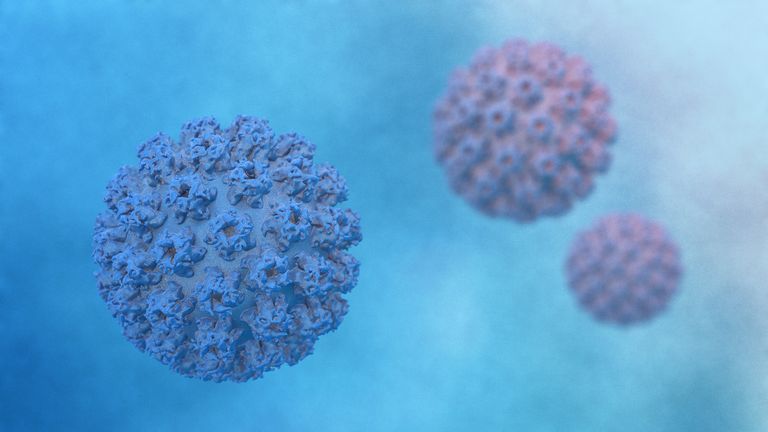For years, girls have been offered the HPV vaccination just before they reach their teen years and, from September, boys will also be eligible.
What is HPV?
HPV (human papillomavirus) is a common group of viruses. They can cause things such as warts or verrucas or, at the more dangerous end of the scale, they are linked to cancers, such as cervical cancer, anal cancer, genital cancers, and cancers of the head and neck.
There are more than 100 types of HPV and around 40 of them affect the genital area.
Does HPV cause cancer?
Advertisement
Nearly all cervical cancers are caused by infection with a high-risk type of HPV, the NHS says, but only some anal, genital, head and neck cancers are caused by HPV infection.
What happens if I get an HPV infection?
More from UK
HPV is very common and can be caught through any kind of sexual contact with another person who is infected. Sometimes there are no symptoms.
Most people can clear the infection naturally but some women infected with high-risk HPV cannot. It could then cause abnormal tissue growth, changes in the cells of the cervix and eventually cervical cancer if it's not treated.
So there's a vaccine?
Actually, there are a number of vaccines. The NHS uses Gardasil, which protects against four types of HPV: 6, 11, 16 and 18.
Types 16 and 18 are the cause of more than 70% of cervical cancers along with some anal and genital cancers and some cancers of the head and neck, the World Health Organization says.
HPV types 6 and 11 cause around 90% of genital warts.
Gardasil will not prevent other sexual infections or pregnancy.
Who can get the vaccine?
The first dose is usually offered to girls aged 12/13 and the second dose six to 12 months later.
Both doses are needed for full protection and girls who miss out can be vaccinated on the NHS until they turn 25.
Girls who start the HPV vaccination after the age of 15 will need three doses to be fully protected.
And now boys can get the vaccine too?
Yes. In July it was announced that boys in England aged 12/13 will be eligible. This is expected to start in September as they return to school.
Many boys are already benefiting from "indirect protection" because girls have been receiving the vaccine for 10 years. Because of this, the NHS says a catch-up programme is not necessary.
But boys don't have a cervix so how are they at risk of cervical cancer?
You're right, they're not.
But other cancers that can affect men, such as cancer of the anus, penis, head and neck, are also linked to infection with HPV types 16 and 18.
Also, HPV types 6 and 11 are responsible for the majority of genital wart infections.
What about men who have sex with men? And transgender people?
According to the NHS, men who have sex with men (MSM), and trans men and trans women who are eligible for the vaccine will need the same number of doses as other people – two if they're under 15 and three otherwise.
If they have three, the second will be given at least a month after the first. The third dose will be given ideally within 12 months after that.
From April 2018, men who have sex with men (MSM) up to and including the age of 45 will be eligible for free HPV vaccination on the NHS when they visit sexual health clinics and HIV clinics in England.
Trans women (people who were assigned male at birth) are eligible in the same way as MSM if their risk of getting HPV is similar to the risk of MSM who are eligible for the HPV vaccine.
Trans men (people who were assigned female at birth) are eligible if they have sex with other men and are aged 45 or under.
If trans men have previously completed a course of HPV vaccination as part of the girls' HPV vaccine programme, no further doses are needed.

How long does the vaccine last?
The first vaccine was only introduced in 2006 so we don't know for sure.Read More – Source
[contf]
[contfnew]

Sky News
[contfnewc]
[contfnewc]





